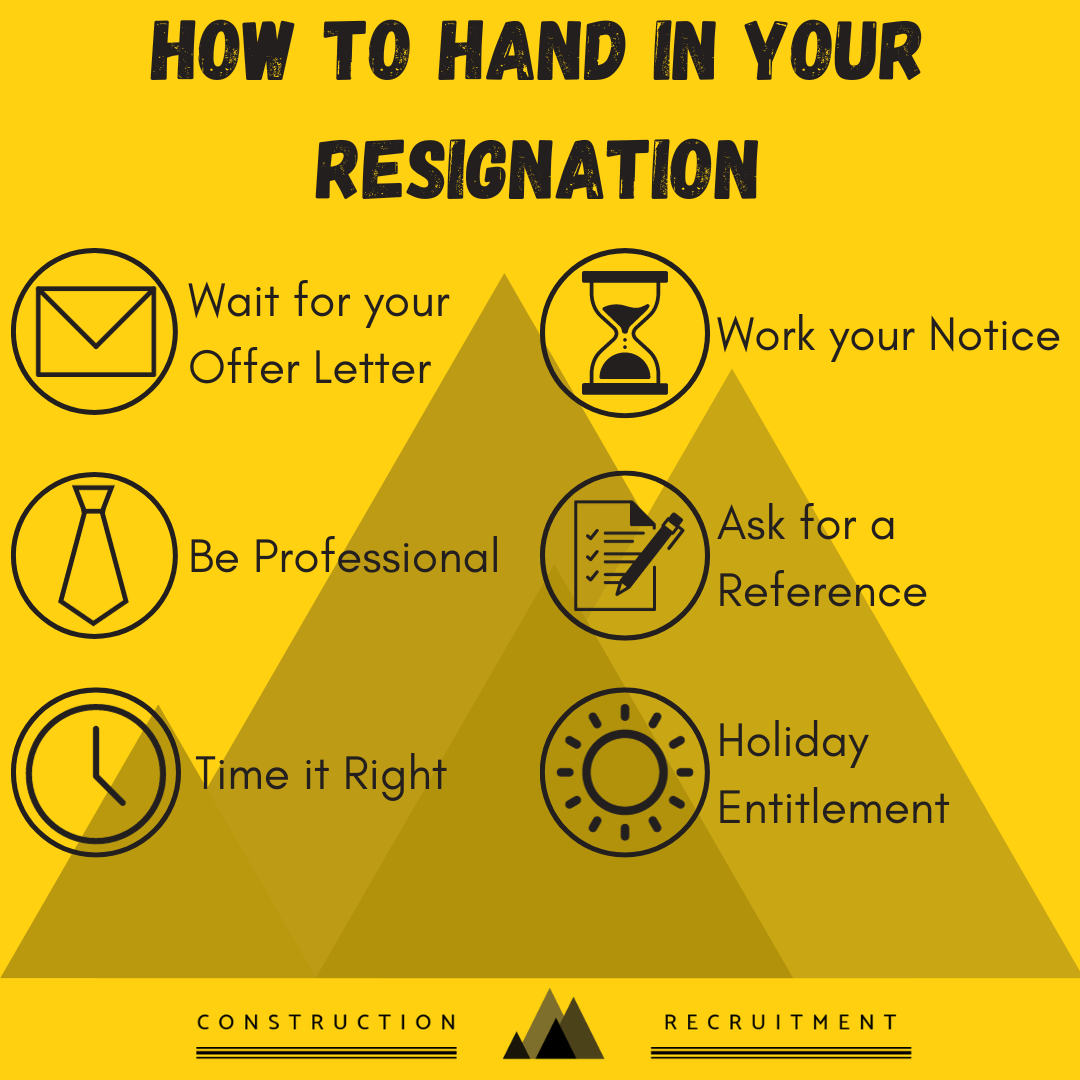
26 Jul How to Hand In Your Resignation
In order to start that next amazing opportunity, you first have to end your time in your existing role. Handing in your resignation can be awkward but that doesn’t mean it can’t be a positive professional stage in your career. Here are our six steps to handing in your resignation:
- Wait for your offer letter for your new position
Wait until you have the security of documentation offering you a new position before you begin the process of leaving your current job.
2. Be professional
Be polite, brief and non-confrontational. There’s no need to gush about how much the job has meant to you and how much you’ll miss working there. Equally, don’t use this as an opportunity to explain everything wrong with the job you are leaving. It’s likely that you will encounter your colleagues again in a future professional setting and you don’t want to make things difficult for yourself by burning bridges. Simply write that you are giving notice of your resignation from the position you are leaving and perhaps thank your employer for the opportunity if you wish before signing it. Make sure that notice of resignation is given in writing and dated so that it can be referred back to if necessary.
3. Time it right
We’re certain that you’ll want to get things moving as soon as you receive your offer letter for your new position but it’s important to pick the right time to hand in your notice. Wait until your line manager is not with a customer, employee or their line manager. If you leave the letter on their desk for their attention, ensure it’s visible and perhaps alert their PA if they have one – the last thing you need is for your letter to get lost in a pile of paperwork and never see the light of day.
4. Work your notice
In your letter, offer to work your notice period so that you are fulfilling all your contractual obligations and there is no reason to withhold salary or bonus payments. Include the date in your letter so that there is no mistake when your notice period begins and, consequently, ends. Should you feel you are being treated unfairly, seek advice as your rights are protected by employment law.
5. Ask for a reference
Ask your employer for a reference for you to take with you. This can be used for future job applications. If your employer knows that you will be receiving and reading the reference directly, it’s much more likely to be positive.
6. Holiday entitlement
If you have a good relationship with your employer they may allow you to use any remaining holiday entitlement to shorten your notice period. It isn’t obligatory for employers to offer this option but it’s worth asking!
Contact Information:



